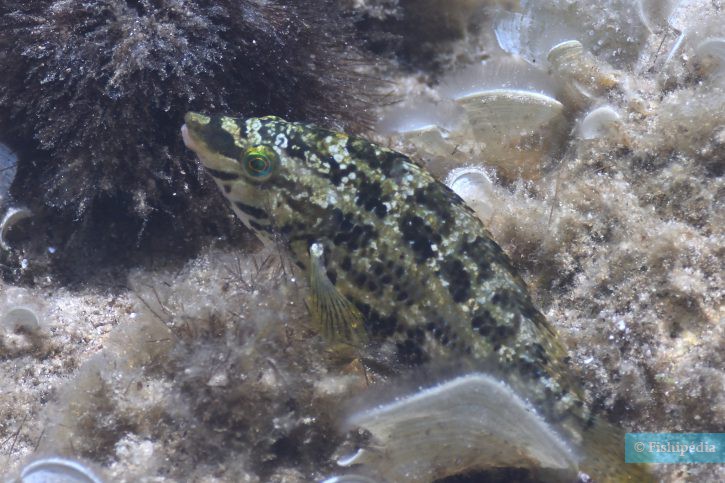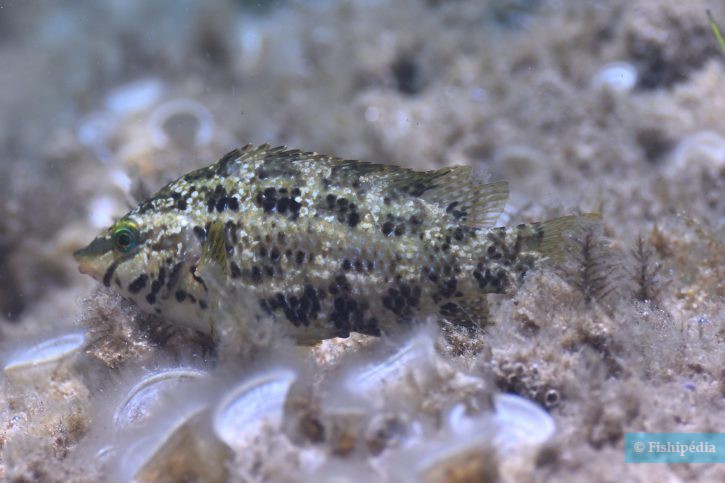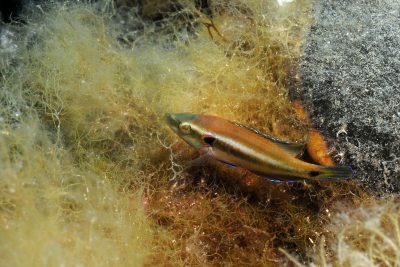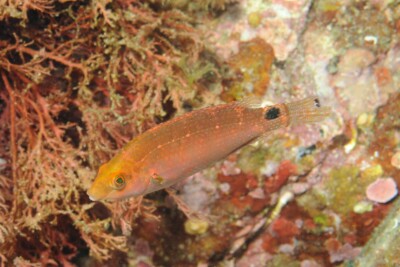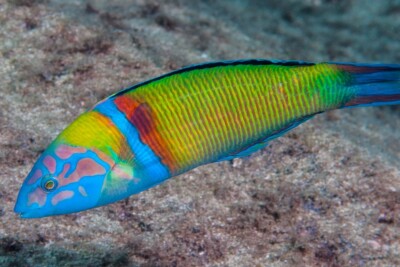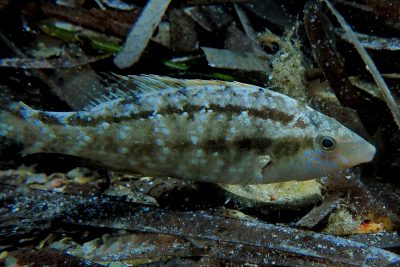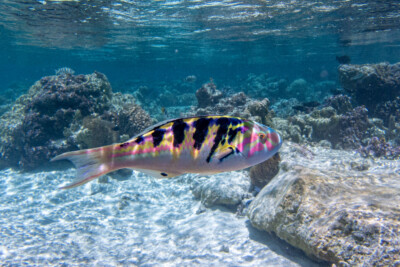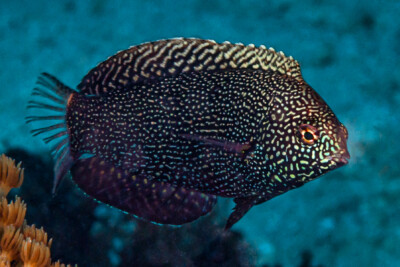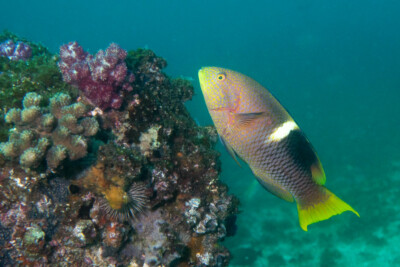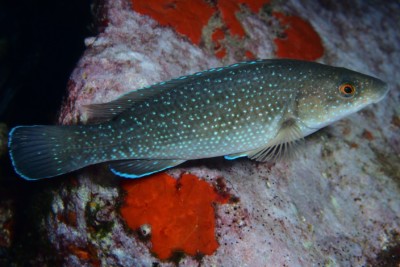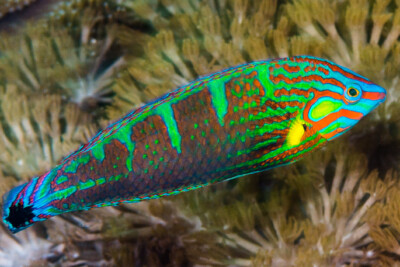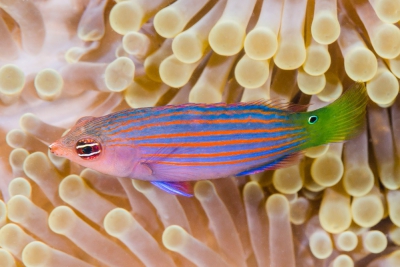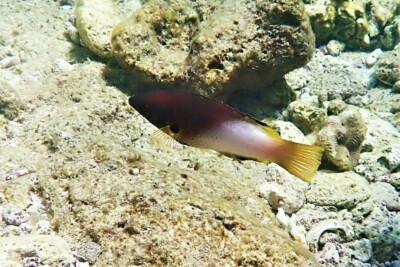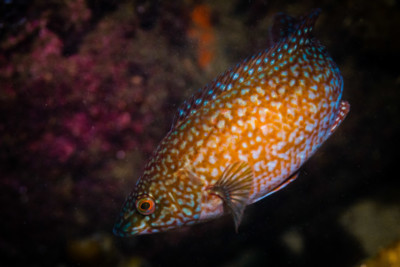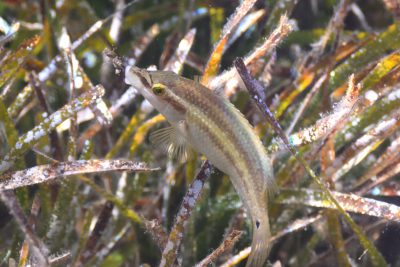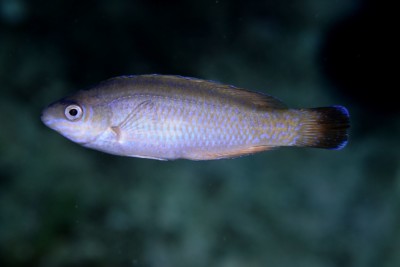five-spotted wrasse
| Scientific name | Symphodus roissali |
|---|---|
| Descriptor | Risso |
| Year of description | 1810 |
| IUCN category (World) | LC |
| Family | Labridae |
| Genus | Symphodus |
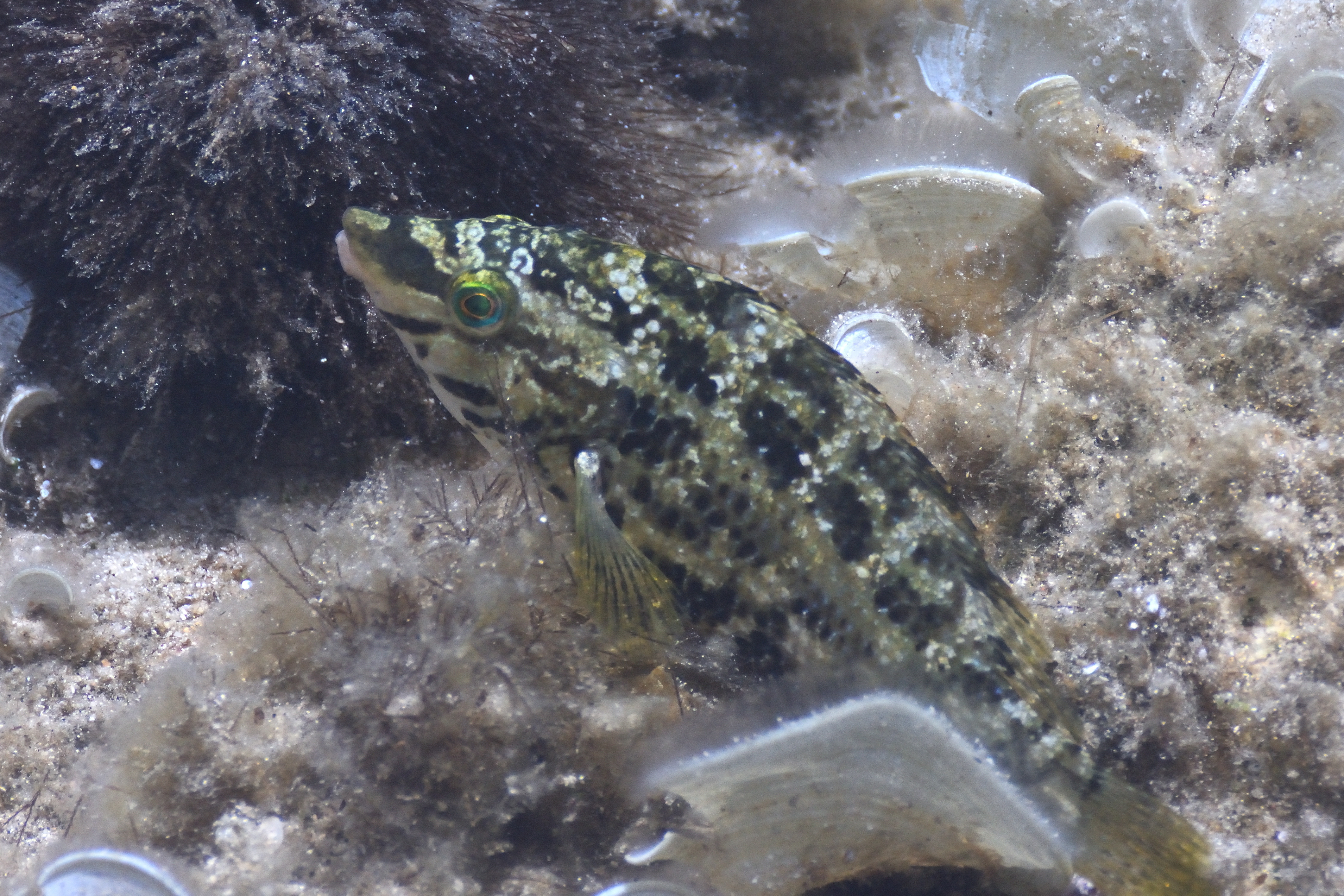

Introduction
The five-spotted wrasse, Symphodus roissali, is a small rockfish endemic to the Mediterranean region and the temperate Atlantic coast.
Like the ornate wrasse and the ballan wrasse, males are known for the sophistication of their nests and their protective role in the reproduction process.
Who is it?
Morphology
-
Type
-
Average size12 cm
-
Maximum size17 cm
-
ShapeRectangular
-
Patternmottling
-
Type
-
Average size12 cm
-
Maximum size17 cm
-
ShapeRectangular
-
Patternmottling
How to recognize This fish ?
The body is compressed and beige in color with wide brown marbling, in five spots as its name suggests.
It also has golden reflections. The color can vary depending on the substrate and stress level. Overall, the pattern and color blend ensure optimal camouflage for this species in sandy bottoms with high concentrations of algae and in seagrass beds.
Sexual dimorphism
During the breeding season, the genital appendage of the female is dark blue. Males have brighter colors during courtship displays.
Males grow faster than females and are larger in size.
Behaviour & Life cycle
-
dietomnivorous with carnivorous tendency
-
Sociabilityliving in a group or alone
-
territorialYes
-
Way of livingdiurnal
Like most wrasses, juveniles live in shallow waters in seagrass beds and rocky areas, often in the company of similar species.
Adults are found in algae and mixed areas between seagrass beds and rocky bottoms, sometimes in seagrass beds. These fish are quite shy and harder to observe than the peacock wrasse or ballan wrasse.
Males are territorial during the breeding season. Dominated females and males can live in scattered groups. Their diet typically consists of bryozoans, hydroids, tube worms, shrimp, amphipods, and mollusks.
Reproduction
-
Reproductionovipare qui pond sur substrat découvert
-
Hermaphroditeprotogynous
Reproduction occurs from spring to early summer. The dominant male prepares a nest of Cystoseria algae.
Once the nest is built, he attracts one or more females through courtship displays. After spawning, the male fertilizes the eggs and begins to protect the offspring. The female does not stay after spawning and does not care for the eggs.
During this period, males are particularly aggressive towards other males of the same species. Agonistic displays and intimidation rituals are common. It is possible that 'satellite males,' pretending to be females, participate in fertilizations by releasing quick ejaculations above the nest, but this behavior needs further confirmation.
Harmless species
This species does not represent any particular threats to humans when encountered in its natural environment.
Origin and distribution
What is its habitat?
Natural environment characteristics
-
Temperature16 - 28 °C
-
Depth0 - 30 m
Biotope presentation
The five-spotted wrasse is generally found at depths of less than 30 meters, in most rocky areas and seagrass beds. Mature males are present on flat areas where they build their nests.
Species of the same biotope
Fishkeeping
Not recommended
We do not recommend keeping this species in an aquarium. It has unpredictable needs which, if not met, generate significant stress, potentially leading to a shorter life expectancy, an interruption of its growth or the development of pathogens.
To go further
Sources & Contributions
Participation & Validation
The Fishipedia team and specialist contributors are committed to providing high-quality content. However, although the information comes from scientific sources or testimonials from specialists, the cards may contain inaccuracies.

Benoit Chartrer
Translation
Translation done with the valuable contribution of our translators, who make this information available to a wider audience. We sincerely thank them for their commitment.
Scientific partners
Tags
Species of the same family
Same genus
Species of the same biotope
